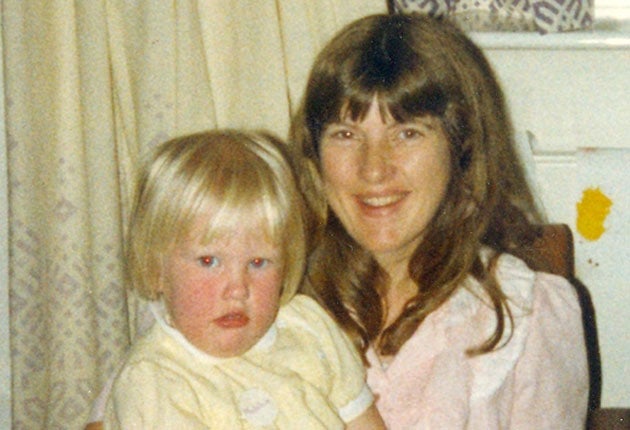Doctors baffled by sharp rise in terminal lung disease
Scientists ask for funding to research idiopathic pulmonary fibrosis, which kills 5,000 people a year

Thousands of people are dying each year from a mysterious lung disease that doctors cannot cure. Cases of idiopathic pulmonary fibrosis (IPF) have increased dramatically over the past 40 years and the disease is estimated to kill at least 5,000 people each year in the UK, according to research published in the academic journal Thorax. Two thirds of all sufferers die within five years of developing it, making it deadlier than several cancers.
The disease is characterised by scar tissue which starts at the bottom of a patient's lung and usually becomes progressively worse. The scarring stops the lungs passing sufficient oxygen into the blood. Initial symptoms include breathlessness on exertion; breathing gradually becomes more shallow and faster as the body tries to compensate for the lack of oxygen and take in more air. The condition can quickly worsen, leaving patients unable to walk and requiring oxygen while lying down.
Doctors are unable to predict which patients will deteriorate most quickly because so little is known about the causes and nature of the disease. Gender and age appear to be a factor, as men and the over-60s are more susceptible, though the reasons for this are unknown. A similar rise has also been reported in the US.
Researchers at Nottingham Respiratory Biomedical Unit found a six-fold increase in the number of people diagnosed with IPF on their death certificates between 1948 and 2008, and a 35 per cent increase in the number of cases recorded by GPs between 2000 and 2008. Part of the increase can be attributed to better recording, but the researchers estimate that 15,000 people are currently living with the condition and there will be a further 5,000 new cases every year.
Despite better recording, researchers believe many cases are being misdiagnosed by GPs, who may see only two new cases every three years. Professor Richard Hubbard, who led the research, said many doctors wrongly diagnose patients with heart failure because the symptoms are similar. "When GPs listen to a patient's back they will hear crackling, like Velcro, which is very similar to heart failure, so there is a lot of misdiagnosis. GPs must send breathless patients for chest X-rays and then refer those with IPF to a respiratory specialist as soon as possible because for the first time treatments are starting to come through."
Professor Hubbard believes the rise in cases will result in greater research funding, especially from the pharmaceutical industry. He said drug discoveries for IPF could also prove effective for other scarred-organ diseases, such as liver cirrhosis and diabetes-linked kidney disease, which affect millions every year.
Professor Stephen Spiro, of the British Lung Foundation, which part-funded the research, said there is a clear need for government investment into IPF. "We now know it kills 5,000, mainly older people, a year, and as the population is ageing, we will see more and more of this condition... we know it is not genetic, and that something triggers the scarring which can progress very quickly, but we need the Government to invest in research to improve our understanding, and raise awareness among doctors and the public."
The National Institute for Clinical Excellence has just announced plans to start work on clinical guidelines for IPF and will also evaluate the cost-effectiveness of a new drug recently approved as safe by the European Medicines Authority.
Case study: Madi and Linda Barrett
Linda was diagnosed with idiopathic pulmonary fibrosis in 2002. She died five years later, aged just 55, having never smoked a cigarette in her life. She left behind two teenage children.
Her daughter Madi, 23, from Blandford Forum in Dorset, is looking for answers.
"It started off with her coughing all the time, and she was so tired that she'd fall asleep while watching TV. She told us she was ill when I was 15, my brother was just 12. She didn't let on just how serious it was at first. Gradually she became more and more breathless and needed to take a portable oxygen machine with her when she went out. I was away at university in her last year, but the summer before she died I looked after her every day. She needed three oxygen machines at home by this stage, her lips and fingers would turn blue. She had a commode because she couldn't climb the stairs; she was pretty much stuck in one room.
"Mum was always such an independent person, so it was horrible to see her like that; she hated being dependent on us, having her dignity taken away. By the end she was too breathless to even talk and would write us notes instead.
"The doctors have no idea what caused my mum's illness, though they know her dad also died of a lung disease. It is so frustrating because she never even tried a cigarette, she ate healthily and exercised, and so this came totally out of nowhere. I really want to raise awareness about the disease so people will have fund-raising events – like they do for cancer – to pay for more research. My parents divorced when I was six so mum was everything to us, I'm still not really coping without her."
Nina Lakhani
Subscribe to Independent Premium to bookmark this article
Want to bookmark your favourite articles and stories to read or reference later? Start your Independent Premium subscription today.

Join our commenting forum
Join thought-provoking conversations, follow other Independent readers and see their replies